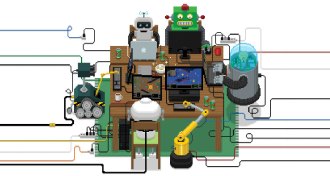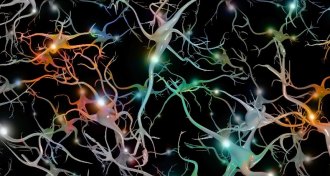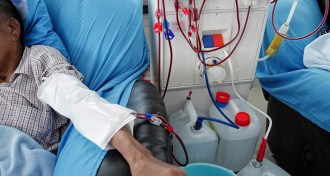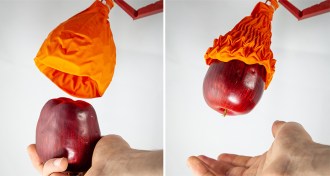Tech
Sign up for our newsletter
We summarize the week's scientific breakthroughs every Thursday.
-
 Artificial Intelligence
Artificial IntelligenceAI can learn real-world skills from playing StarCraft and Minecraft
By playing StarCraft and Minecraft, artificial intelligence is learning how to collaborate and adapt.
-
 Artificial Intelligence
Artificial IntelligenceA new AI acquired humanlike ‘number sense’ on its own
A new artificial intelligence seems to share our intuitive ability to estimate numbers at a glance.
-
 Earth
EarthThe search for new geologic sources of lithium could power a clean future
Futuristic clean-energy visions of electric vehicles are driving the hunt for lithium.
-
 Science & Society
Science & SocietyFacebook data show how many people left Puerto Rico after Hurricane Maria
Conventional surveys can’t track migration after natural disasters in real time. But Facebook data may provide a crude estimate of those who flee.
By Sujata Gupta -
 Artificial Intelligence
Artificial IntelligenceAn AI used art to control monkeys’ brain cells
Art created by an artificial intelligence exacts unprecedented control over nerve cells tied to vision in monkey brains, and could lead to new neuroscience experiments.
-
 Astronomy
AstronomyHow scientists took the first picture of a black hole
Here’s how scientists connected eight observatories across the world to create one Earth-sized telescope in order to create an image of a black hole.
-
 Math
MathMathematicians may have found the fastest way to multiply huge numbers
A new theoretical method for multiplying enormous figures appears to achieve a speed first predicted decades ago.
-
 Health & Medicine
Health & MedicineBlood vessels built from a patient’s cells could help people on dialysis
Bioengineered blood vessels could provide a safer alternative than donor vessels or synthetic implants.
-
 Tech
TechReaders respond to classroom robots, soil erosion and more
Readers had comments and questions about robots in classrooms, benzodiazepines and more.
-
 Tech
TechAn origami design helps this robot lift delicate and heavy cargo
Fragile items, such as soft fruits, as well as heavier goods are in safe hands with a new robotic gripper.
-
 Science & Society
Science & SocietyNine companies are steering the future of artificial intelligence
In ‘The Big Nine,’ futurist Amy Webb explores the political and economic factors that are shaping artificial intelligence.
-
 Health & Medicine
Health & Medicine50 years ago, doctors lamented a dearth of organ donors
Fifty years ago, surgeons’ supply of heart donations was woefully low.